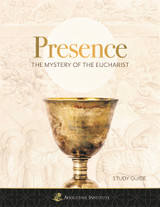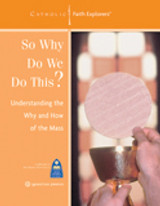Product Overview
Anyone who has read The Hobbit and The Lord of the Rings can gather that their author hated tyranny, but few know that the novelist who once described himself as a hobbit “in all but size” was—even by hobbit standards—a zealous proponent of economic freedom and small government. There is a growing concern among many that the West is sliding into political, economic, and moral bankruptcy. In his beloved novels of Middle-Earth, J.R.R. Tolkien has drawn us a map to freedom.
Scholar Joseph Pearce, who himself has written articles and chapters on the political significance of Tolkien’s work, testified in his book Literary Giants, Literary Catholics, “If much has been written on the religious significance of The Lord of the Rings, less has been written on its political significance—and the little that has been written is often erroneous in its conclusions and ignorant of Tolkien’s intentions…. Much more work is needed in this area, not least because Tolkien stated, implicitly at least, that the political significance of the work was second only to the religious in its importance.”
Several books ably explore how Tolkien’s Catholic faith informed his fiction. None until now have centered on how his passion for liberty and limited government also shaped his work, or how this passion grew directly from his theological vision of man and creation. The Hobbit Party fills this void.
The few existing pieces that do focus on the subject are mostly written by scholars with little or no formal training in literary analysis, and even less training in political economy. Witt and Richards bring to The Hobbit Party a combined expertise in literary studies, political theory, economics, philosophy, and theology.
Editorial Reviews
"The hobbits' Shire is a microcosm of Victorian England in every way, especially the way everything works fine without interference from the institutions of the state. But can the Shire really be a model for our more complex times? The Hobbit Party, with its punning title, makes the case that it can be, should be, was meant to be, and that The Lord of the Rings expands the argument to give us images of an ethical as well as ecological politics, ever more badly needed."
— Tom Shippey, Author, The Road to Middle-Earth
— Bradley J. Birzer, Visiting Scholar in Conservative Thought, University of Colorado Boulder Author, American Cicero: The Life of Charles Carroll p>"Beautifully written, this work gives fascinating insights into the realm of Middle-Earth. Moreover, it is a tour of the important issues of our world through Tolkien's eyes, including limited government, man's temptation to power, freedom, just war, socialism, distributism, localism, love, and death. These topics are woven seamlessly throughout, and you will leave the book with unforgettable impressions of these themes illustrated by Tolkien's imagery."
— Art Lindsley, Vice President, The Institute for Faith, Work & Economics
"J. R. R. Tolkien is one of the most widely read but arguably misunderstood of the twentieth century's literary geniuses. In this book, Witt and Richards lift the veil on Tolkien and reveal a political and, yes, economic thinker who constantly surprises readers and whose insights are even more valuable for our time than his own. Tolkien fans who read this book will never think about this great author the same way again."
— Samuel Gregg, Research Director, Acton Institute Author, Becoming Europe
— Thomas Howard, Author, Dove Descending: A Journey into T. S. Eliot's "Four Quartets" p>"Witt and Richards do a brilliant job of rescuing Tolkien's literary legacy from the clutches of the cultural left. They reveal Tolkien as a profoundly Catholic thinker, with deep insights into the fundamental issue of religion, namely man's attempt to grapple with his own mortality. As a conservative’s companion to Tolkien, The Hobbit Party renews our appreciation of Tolkien’s contribution to literature and his profound impact on our culture."
— David Goldman, Author, How Civilizations Die







